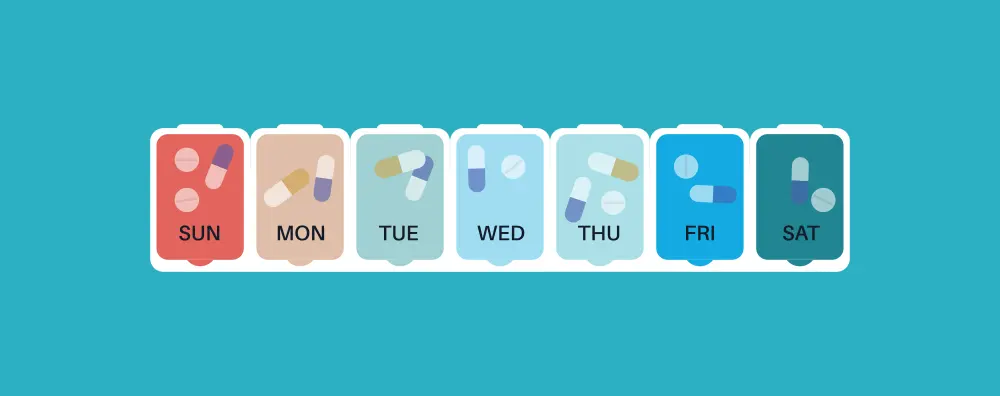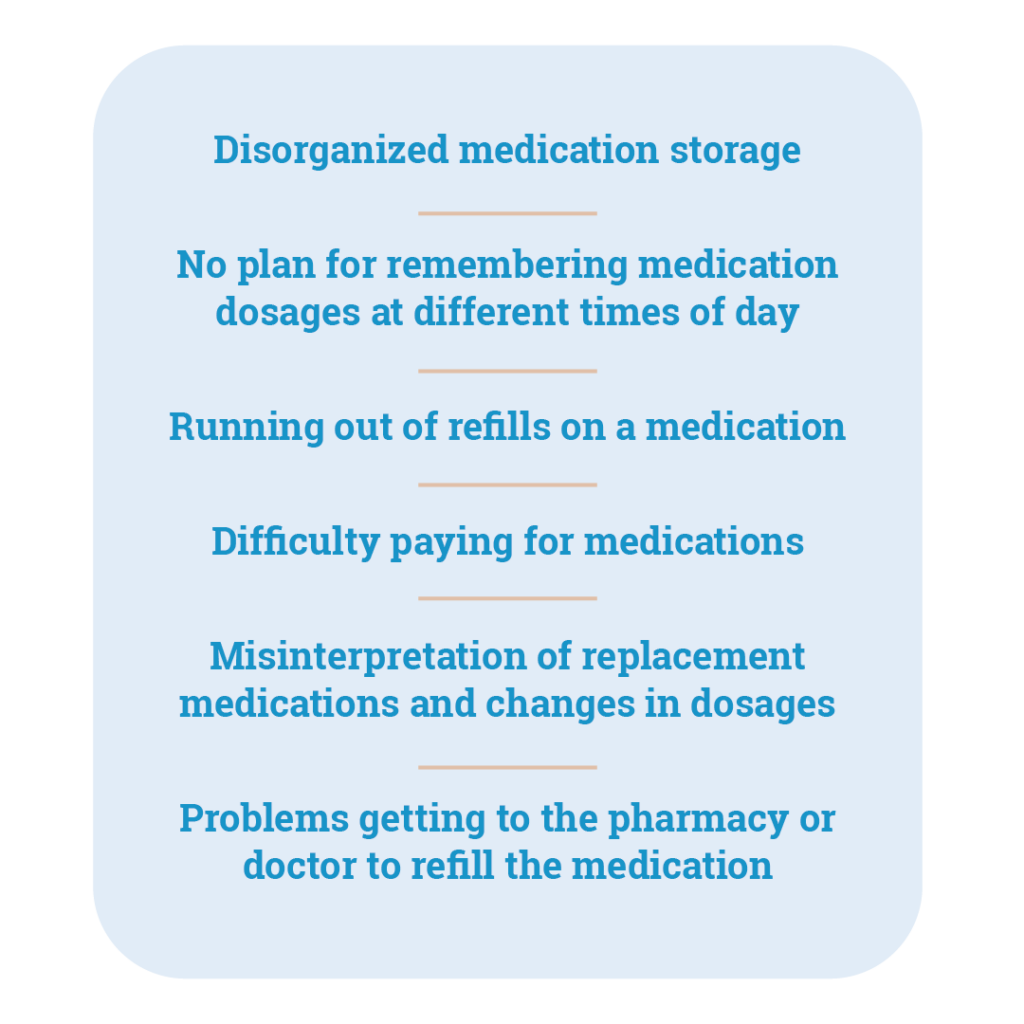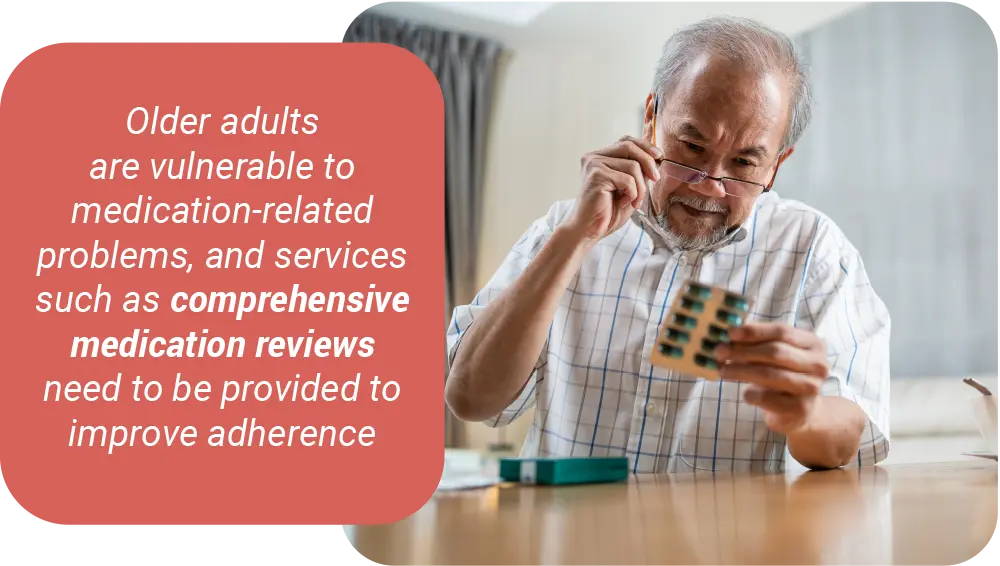Care-at-home Capability: Improving Medication Adherence
By Spiras Health | September 11, 2023

A doctor writes a prescription, a pharmacist fills it. Then the patient takes it home and the visibility ends. Unlike the hospital, where the nurse scans and watches a patient take every pill, no one knows if the patient is taking their medications in the home. This potential gap in care is called “medication nonadherence.”
Timing can make the difference
When Jane’s A1C numbers were still poorly managed despite a new daily injectable medication, Jaclyn, her Spiras Health nurse practitioner, knew something was off. That’s when she noticed that Jane’s injection was scheduled in the evening – after her caregiver had gone home for the day.
“Do you have any difficulties with the injection?” Jaclyn asked.
The answer was startling – Jane even had trouble uncapping the pen. So, Jaclyn called the PCP, asking if the injection could be rescheduled to when the caregiver was present.
This small intervention allowed Jane to adhere to her medications and better control her diabetes and potentially expensive, debilitating complications.
The nationwide cost of medication nonadherence
According to the CDC: “Medication nonadherence accounts for about 125,000 deaths, $100 billion in direct costs, and $300 billion in indirect health care costs each year.” Even more alarming, “up to 50% of patients do not adhere to their prescribed therapies.”

In-home care improves compliance
At Spiras Health, our nurse practitioner care model and care-at-home approach bring medication adherence issues front and center. With medication bottles in hand, we can notice problems and help patients make changes to become more compliant. Our medication assessment measures medication adherence and allows us to track changes over time. Those changes overwhelmingly add up to higher compliance among our patients.
Spiras Health delivers adherence improvements
Changing the medication schedule or organizing the storage represent simple interventions with significant impact. After 180 days with Spiras Health, nonadherence is reduced by 95%. High compliance patients are further improved by 83%. These improvements show how trusting relationships and watchful eyes dramatically improve adherence.
A simple fix can solve most issues
Adherence is usually viewed through the lens of behavior, but practical considerations rather than non-compliant behavior drive most adherence issues. Our clinicians often discover:

Juggling too many pills
CMS established 80% adherence as the standard to meet. For this reason, we work to improve low and moderate adherence to that level or better – a challenge when so many pills are involved. Our patients average 10 medications, and some more than 15. As we all know, even if you’re taking vitamins and healthy, any number over 5 becomes harder to juggle. These drugs often include antihypertensives, oral diabetes medications, statins, pain treatments and SSRIs for depression and anxiety, common co-morbidities for patients with multiple chronic conditions.
Most adherence issues with multiple medications improve with a one-on-one clinician relationship in the home. For Bob, a patient with literacy difficulties, our clinician determined that blister packs would keep Bob on track. The packaging helped him manage multiple medications and get his hypertension under control.
The case for comprehensive medication reviews
A study of COPD patients found that mental health diagnoses (particularly depression), lower health literacy, medication-related problems, and lower sociodemographic status are associated with decreased medication adherence, increased readmission rates for acute COPD exacerbations, and poorer health outcomes. The study found: “Older adults are particularly vulnerable to medication-related problems and that comprehensive medication reviews improve adherence.” Our experience validates this conclusion—frequent medication reviews support improved adherence and patient outcomes.
“Our field clinicians check those medication bottles at every visit,” said Amy Padilla, NP, Director of Clinical Services. “Our comprehensive medication review – including storage, remembering, and refills – makes a huge difference in the adherence.”

Trusted relationships deliver quality of life
In an ideal world, a friendly robot would appear at your breakfast table to dispense and track medication adherence in the home. We shouldn’t rule this out in some form of a Jetsons future. But for now, Spiras Health clinicians provide the motivation and support to adhere to a plan of care – and so much more. No robot can ever replace the trusting relationships that dramatically improve adherence and the quality of life.
To learn how to offer Spiras Health to your members with complex needs, contact us using the form below
- Centers for Disease Control. (2017, August). Strategies and Emerging Interventions for Improving Medication Adherence. Science-in-Brief Feature: Turning Science Into Action. — www.cdc.gov/dhdsp/pubs/docs/SIB_feature_Aug2017.pdf
- Kumamaru H;Lee MP;Choudhry NK;Dong YH;Krumme AA;Khan N;Brill G;Kohsaka S;Miyata H;Schneeweiss S;Gagne JJ; (2018, November). Using previous medication adherence to predict future adherence. Journal of managed care & specialty pharmacy. — pubmed.ncbi.nlm.nih.gov/30362915/
- Liu, L., Almodóvar, A. S., & Nahata, M. C. (2022, November 26). Medication adherence in Medicare-enrolled older adults with chronic obstructive pulmonary disease before and during the COVID-19 pandemic. MDPI. — www.mdpi.com/2077-0383/11/23/6985

 Prev
Prev